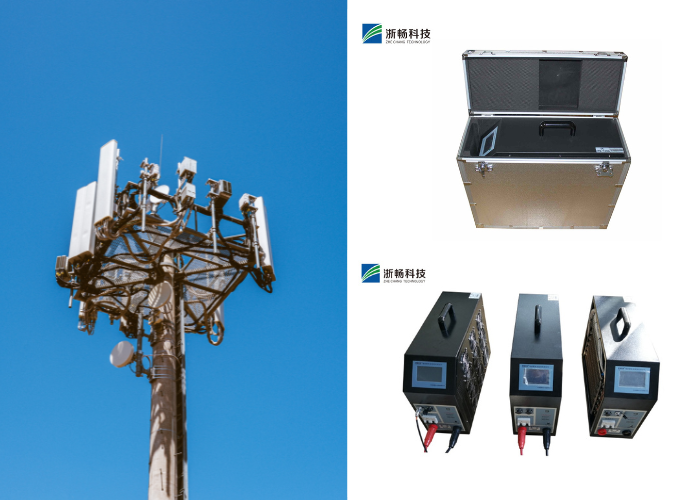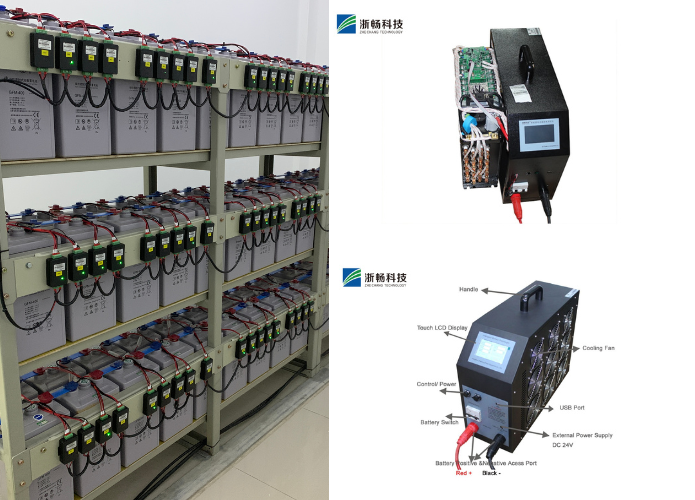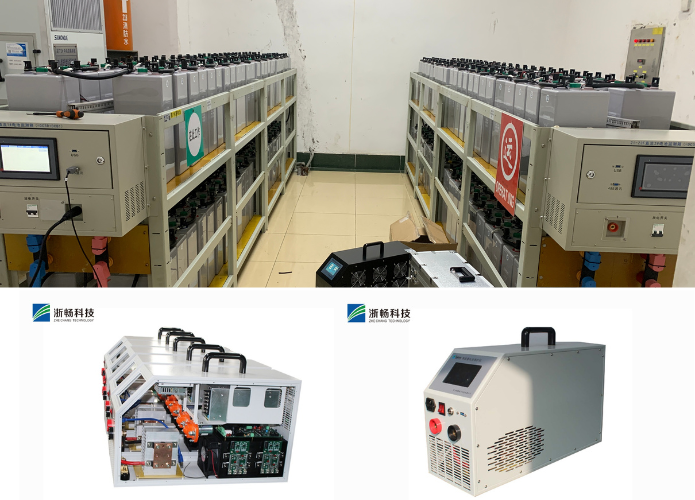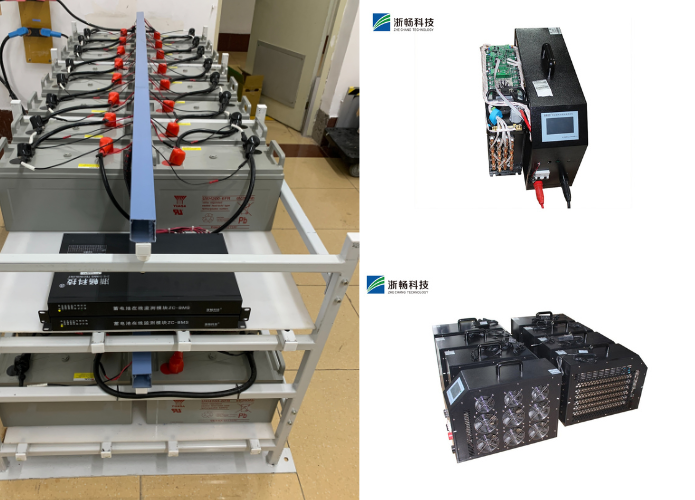UPS Battery Testing and Monitoring
In a world where businesses and critical systems rely heavily on uninterrupted power, having a reliable Uninterruptible Power Supply (UPS) system is essential. UPS systems are designed to provide backup power during power outages or electrical failures, allowing time to safely shut down or maintain operations. However, the most critical component of any UPS system is its battery. Without properly functioning batteries, the UPS cannot provide the necessary power during an outage, leading to potential data loss, downtime, or operational disruption.
This blog will guide you through the importance of UPS battery testing and monitoring, the tools you can use, including UPS battery testers and UPS battery analyzers, and the best practices for maintaining the health and longevity of your UPS system.
The Role of UPS Batteries in Power Systems
UPS batteries act as the core energy source when the main power supply is interrupted. Whether in data centers, hospitals, or industrial plants, UPS systems provide backup power to critical equipment until the power is restored or a generator kicks in. The batteries must be in optimal condition to ensure reliability and prevent unexpected failures.
UPS systems typically use lead-acid batteries or lithium-ion batteries, with lead-acid being the most common. However, even the most robust batteries degrade over time due to several factors like temperature, charge cycles, and age. This is where UPS battery testing and monitoring come in, allowing businesses to assess the battery's health and performance.
Why UPS Battery Testing is Important
The consequences of a UPS battery failure can be catastrophic, ranging from minor downtime to complete system failure, potentially resulting in significant financial loss, data corruption, or even safety risks in critical applications. By regularly performing UPS battery testing, you can:
- Ensure Reliability: Confirm that the battery can deliver the necessary power when needed.
- Predict Failures: Identify weak or failing batteries before they cause a power disruption.
- Extend Battery Life: By monitoring and maintaining batteries correctly, you can extend their lifespan.
- Minimize Downtime: Proactively identifying battery issues reduces the likelihood of unexpected outages and the costly downtime they can cause.
UPS batteries don’t typically fail all at once. They often degrade gradually, which can be detected early through regular testing and monitoring, ensuring that corrective actions can be taken in advance.

Common Types of UPS Battery Testing
There are several methods available for testing UPS batteries, each serving a specific purpose and providing different types of information about the battery's health.
1. Voltage Testing
One of the simplest ways to test a UPS battery is by measuring its voltage. A UPS battery tester can quickly gauge the voltage across the battery terminals. Voltage testing allows you to see if the battery is operating within the correct range. However, it is not the most comprehensive method of testing, as a battery may still fail even if its voltage appears correct.
2. Load Testing
Load testing places a temporary load on the UPS battery to simulate the conditions it would face during an actual power outage. This method helps determine if the battery can handle the load and maintain voltage under real-world conditions. Load testing provides a more accurate reflection of the battery's ability to perform but can be time-consuming and slightly more complex.
3. Impedance Testing
Impedance testing is a non-intrusive test used to measure the internal resistance of a battery. This is done using a UPS battery analyzer. As batteries age, their internal resistance increases, reducing their ability to deliver power efficiently. By regularly performing impedance testing, you can track battery health over time and predict when a battery will fail.
4. Conductance Testing
Conductance testing is another effective method used to assess the battery's health without putting it under load. This method evaluates the battery's ability to conduct current by sending a small signal through the battery and measuring the return current. Batteries with poor conductance often show signs of deterioration. This test is faster than load testing and offers more detailed insights than voltage testing.
5. Capacity Testing
Capacity testing is one of the most thorough ways to test UPS batteries. It involves discharging the battery completely and then measuring the total amount of energy it can provide. Capacity testing offers a clear view of the battery’s remaining useful life and is often used in conjunction with other testing methods for a comprehensive battery health assessment.
UPS Battery Monitoring: A Proactive Approach
While periodic testing is critical, continuous monitoring of UPS batteries can provide real-time insights into battery performance, ensuring even higher reliability. UPS battery monitoring systems track important parameters like voltage, current, temperature, and battery health in real-time, enabling early detection of potential issues.
Key Benefits of UPS Battery Monitoring
Early Warning Alerts: Monitoring systems can provide alerts when the battery’s performance deviates from normal parameters, allowing you to address issues before they lead to failure.
Optimized Maintenance: With continuous monitoring, you can transition from time-based to condition-based maintenance, which reduces unnecessary maintenance actions while ensuring that no faults are overlooked.
Historical Data: By tracking performance over time, monitoring systems help you predict battery life expectancy and plan for replacements before a failure occurs.
Cost Savings: Early detection of problems helps prevent emergency replacements, reduce downtime, and extend the overall life of the UPS system, providing significant cost savings in the long run.
How to Choose the Right UPS Battery Tester and Analyzer?
With numerous options available, choosing the right UPS battery tester or UPS battery analyzer can be a daunting task. The best tool for your needs depends on several factors, including the size of your UPS system, the battery type, and the level of detail you need in your testing.
1. Accuracy and Precision
When testing UPS batteries, accuracy is essential. A good UPS battery analyzer should provide precise measurements of voltage, impedance, or conductance. Look for devices with a high level of accuracy to ensure that even minor issues with the battery are detected.
2. Test Method
Depending on your needs, you might prefer one type of testing method over another. Voltage testers are simple and quick, but load testers and impedance analyzers offer more in-depth analysis. Consider how detailed you need the testing results to be.
3. Ease of Use
The tester or analyzer you choose should be easy to use, especially if the testing will be performed by personnel who may not have in-depth technical expertise. Look for tools with intuitive interfaces, clear readouts, and automatic testing functions.
4. Compatibility
Ensure that the UPS battery tester you select is compatible with the specific type of batteries in your UPS system. Different batteries (e.g., lead-acid vs. lithium-ion) may require different testing methods or settings.
5. Portability
If your facility has multiple UPS systems or if you need to test batteries across several locations, portability may be a factor. Some battery testers are designed to be handheld and lightweight, making them easy to transport and use in different areas.
Best Practices for UPS Battery Testing and Monitoring
UPS batteries are crucial to ensuring your business or facility remains operational during a power outage. By following best practices, you can maximize the performance and lifespan of your UPS batteries.
1. Regular Testing Schedule
UPS batteries should be tested regularly, at least once every three to six months, depending on the critical nature of the system. Regular testing ensures that any degradation in battery health is caught early before it leads to system failure.
2. Keep Records of Test Results
Maintaining detailed records of your battery tests is crucial for tracking performance over time. This historical data will help you predict when a battery is nearing the end of its life and needs to be replaced. Many modern UPS battery analyzers offer the ability to store and export test results, making record-keeping more convenient.
3. Monitor Temperature
Battery performance is heavily influenced by temperature. Overheating or operating in temperatures outside the recommended range can significantly shorten battery life. Regularly monitor battery temperature, both during operation and while idle, to prevent thermal damage.
4. Replace Batteries Before They Fail
While it might seem tempting to delay replacing batteries until they completely fail, it’s better to proactively replace batteries when tests show significant degradation. Waiting for a failure can lead to costly downtime, especially if the UPS is powering critical systems.
5. Follow Manufacturer’s Guidelines
Always follow the battery manufacturer’s recommendations for testing, maintenance, and replacement intervals. Manufacturer guidelines often include important details specific to the battery type and construction, which can help optimize testing procedures and extend battery life.
Zhechang Power’s UPS Battery Testing and Monitoring Services
Zhechang Power provides a comprehensive suite of battery testing and monitoring services for all UPS models. Each service includes a detailed follow-up report that outlines the performance results and, if necessary, recommendations for repairs or replacements.
Additionally, Zhechang Power offers advanced battery monitoring systems that deliver daily updates on the condition of your battery plant. These systems notify you of any detected battery failures and continuously monitor cell voltages, internal resistance, and temperature. They also offer immediate alerts for failing batteries, remote monitoring capabilities, and assist with budgeting for battery replacements before emergencies arise.

Conclusion
Regular UPS battery testing and monitoring are critical for ensuring the reliability of your UPS system and preventing costly downtime. By using tools like UPS battery testers and UPS battery analyzers, and following best practices for maintenance and testing, you can extend the life of your UPS batteries and keep your power systems running smoothly. Proactive testing and monitoring will allow you to detect and resolve issues early, ensuring that your UPS system is always ready to perform when you need it most.
Popular Battery Tester
Popular Battery Tester
Latest News
Latest News


Get Price of Battery Tester
Get Price of Battery Tester
Address:
Floor 3, Building 1, No.1418-60, Moganshan road, Hangzhou city, Zhejiang Province, China.310015


















































